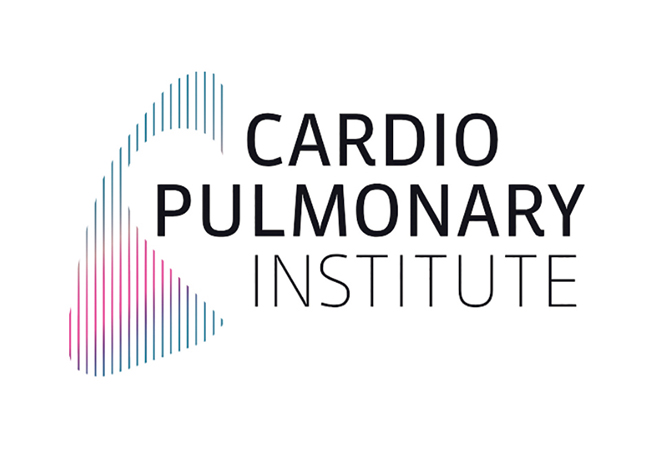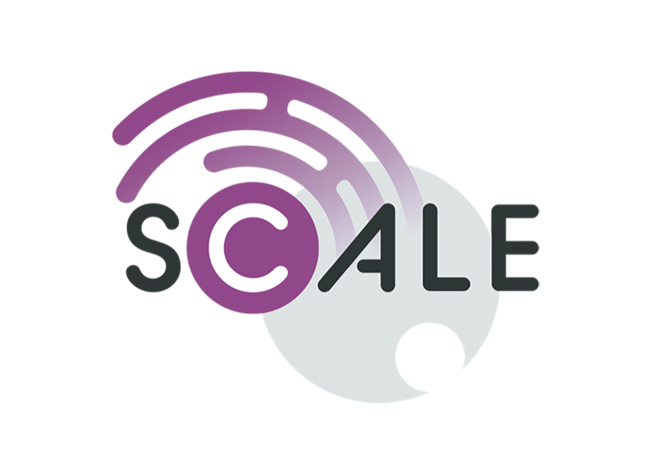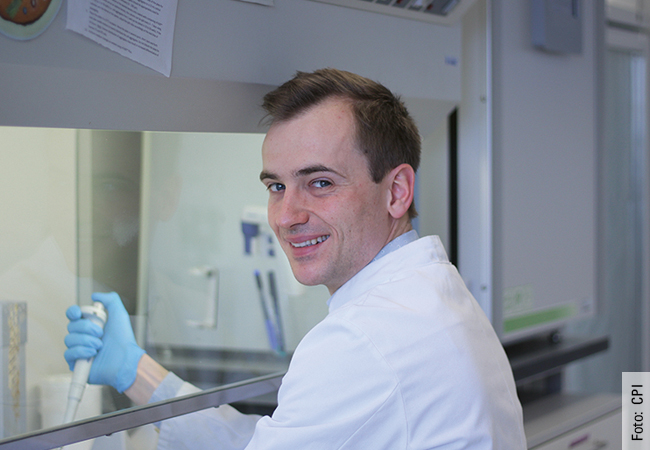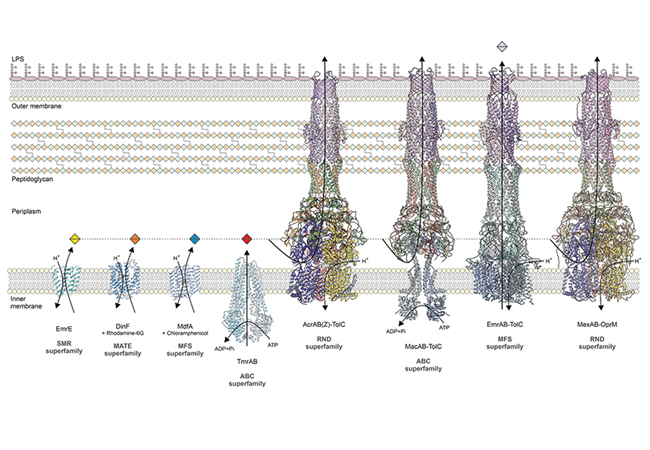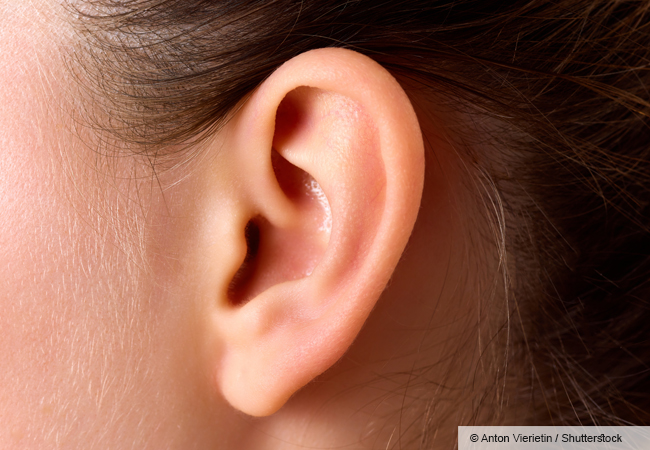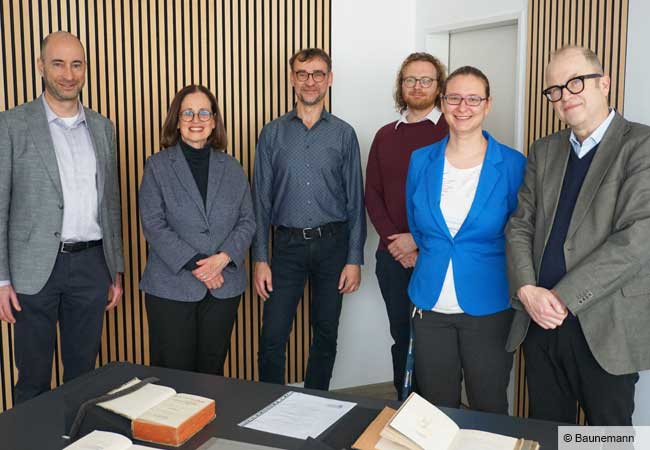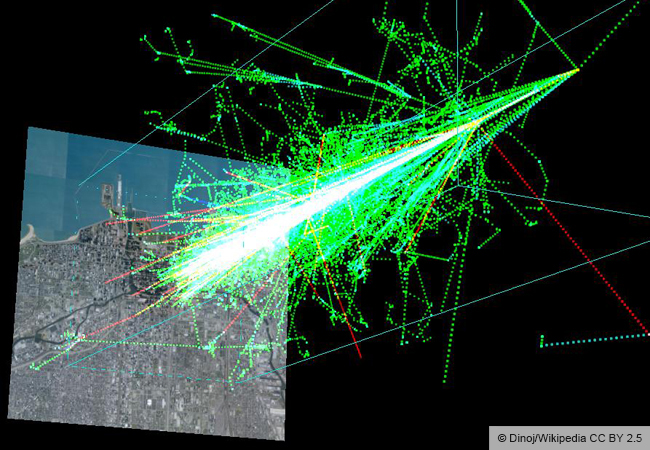One of four cluster initiatives invited to submit a full proposal for the Excellence competition of the German federal and state governments – Existing CPI Cluster of Excellence on heart and lung research will also submit full proposal.
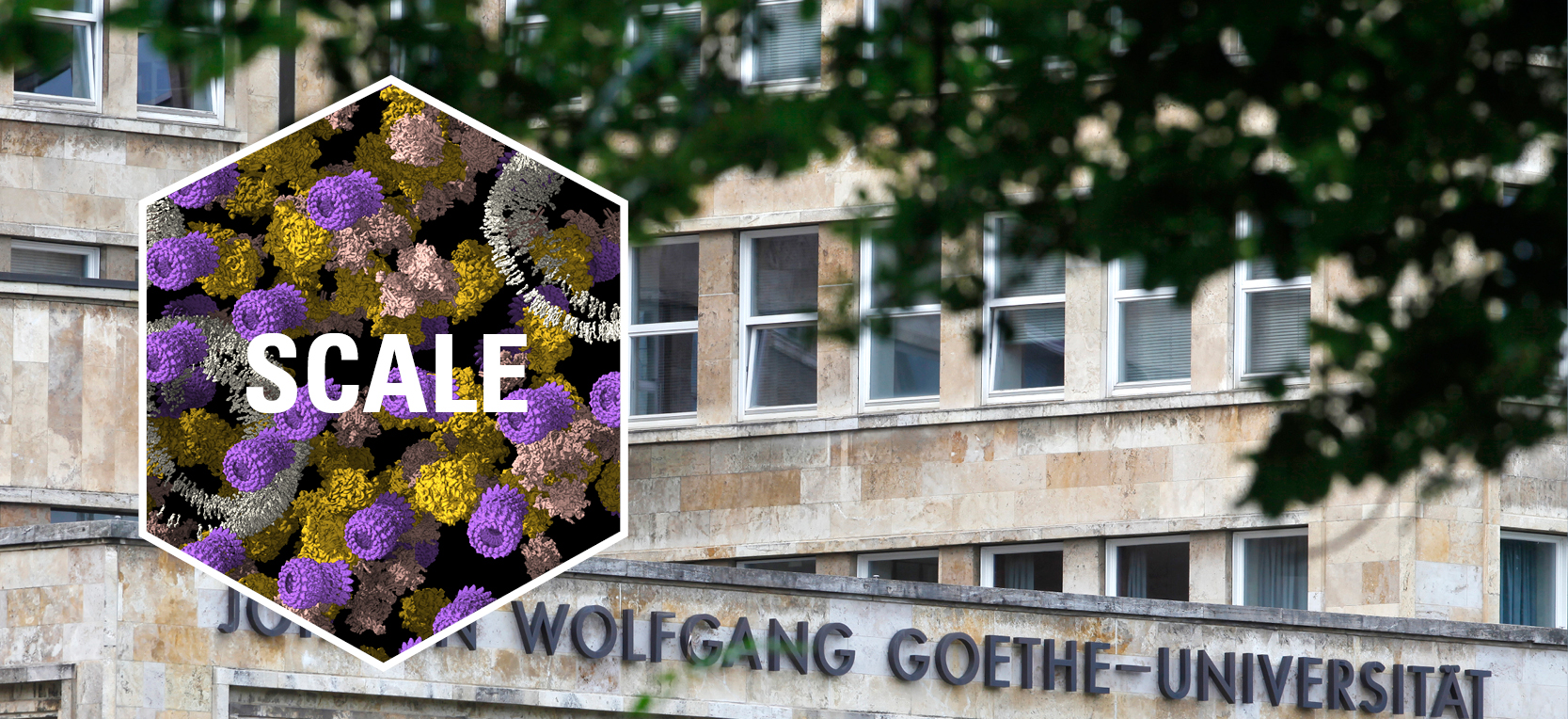
Goethe University Frankfurt is entering the next phase of the multi-stage „Excellence Strategy of the federal and state governments“ competition with two research clusters. The German Research Foundation [DFG] today announced that the SCALE (cell structures) cluster initiative may in August 2024 submit a full proposal for funding as a Cluster of Excellence starting in 2026. The existing Cardio-Pulmonary Institute (CPI) Cluster of Excellence for heart and lung research will also submit a full proposal. In addition, Goethe University researchers are also involved in two successful proposals submitted by the universities of Darmstadt, Giessen and Marburg.
Goethe University President Professor Enrico Schleiff congratulated the researchers on their success: „We knew this would be a very tough competition, which is why I am all the more pleased that one of the interdisciplinary projects proposed by us and our partners has been asked to submit a full proposal. This decision enables us to apply for funding for research on biological cell structures. The fact that we were able to convince the international advisory groups as well as the panel of experts from the German Research Foundation and the German Science and Humanities Council [Wissenschaftsrat] at this first competition stage is evidence of the good starting position we have earned for the next phase of the Excellence Strategy, where the projects will once again be assessed. The same is true with regard to the cooperation with our non-university partners. I would also like to take this opportunity to congratulate my colleagues at our two RMU partner universities, who have successfully submitted three other cluster proposals.“
This makes for good starting conditions for the second phase of the clusters of excellence competition, says Goethe University Vice President Research, Early Career Researchers and Transfer, Professor Bernhard Brüne. As a result, all celebration notwithstanding, there is no time for pause: „We will start work on the full proposals today.“
The other three Goethe University cluster initiatives ConTrust, EMTHERA, and ELEMENTS were not invited to submit a full proposal. In the words of Vice President Brüne: „The Excellence competition is a tough one, with a large number of draft proposals eliminated before getting to the full proposal and finally the funding stage. That being said, it was definitely worthwhile to participate, and I would like to once again thank all colleagues who have played a role in developing these future-oriented ideas over the past two years for their commitment. The preparation of the applications alone has yielded many creative research approaches, created new structures and established interdisciplinary collaborations – enabling us to not only develop new research foci, but also further sharpen Goethe University’s research profile. We will now carefully analyze the reviewers’ feedback. I am confident that, as Goethe University, we will be able to further develop and build on these ideas, supporting the initiatives on this path in whatever form they may assume.“
A total of 143 cluster of excellence draft proposals were submitted to the German Research Foundation in summer 2023. Of these, 41 (28%) have now been invited to submit full proposals in the competition for funding as Clusters of Excellence.
SCALE: Subcellular Architecture of Life. Cells consist of billions of molecules that are organized from single molecules to large molecular complexes to organelles. Although the functions of many individual molecules are known, it often remains unclear how the architecture inside a cell develops and functions, and how the parts interact. In addition to uncovering the cell’s self-organization principles, the scientists at SCALE also want to create a simulation of the cell with high spatial and temporal resolution. This, they hope, will lead to a better understanding of how cells really function and how their various „machines“ interact.
Find out more here.
Project partners:
- Goethe University Frankfurt (applicant university)
- Max Planck Institute of Biophysics (MPIBP), Frankfurt
- Max Planck Institute for Brain Research (MPIBR), Frankfurt
- Frankfurt Institute for Advanced Studies (FIAS)
- Max Planck Institute of Molecular Cell Biology and Genetics (MPI-CBG), Dresden
- Saarland University, Homburg
As an existing Cluster of Excellence, CPI is authorized to submit a full proposal:
CPI: Cardio-Pulmonary Institute. Diseases of the cardiovascular system often go hand in hand with lung diseases, and are the most common causes of death worldwide. The Cluster of Excellence seeks to understand which molecular biological processes underlie these organs’ functioning as well as their failure in diseases. To find new therapeutic approaches, CPI scientists are developing cross-university model systems, ranging from cell cultures to animal models, and combining the results with examination data from patients. The cluster received funding as the „Excellence Cluster Cardio-Pulmonary System“ from 2006 to 2018 and was again awarded the title of Cluster of Excellence Cardio-Pulmonary Institute in 2019.
Find out more here.
Project partners:
- Goethe University Frankfurt and Justus Liebig University Giessen (applicant universities)
- Max Planck Institute for Heart and Lung Research, Bad Nauheim
- University Medical Center Göttingen
- Current funding as a Cluster of Excellence: 2019–2025 (€45 million)
In addition to SCALE, in which it is in the lead, Goethe University Frankfurt is also a partner in the following projects, which will be submitting a full proposal:
RAI – Reasonable Artificial Intelligence
The cluster researches AI systems that not only learn, but are also able to grasp new types of facts and link them to forms of abstract thinking. The aim is for these AI systems to draw logical conclusions, make context-related decisions and learn from them.
Project partners:
- TU Darmstadt (applicant university)
- Julius-Maximilians-Universität of Würzburg
- Goethe University Frankfurt
- University of Bonn
TAM – The Adaptive Mind
The Adaptive Mind is a research cluster that brings together scientists from experimental psychology, clinical psychology and artificial intelligence in an effort to understand how the human mind successfully adapts to changing conditions, and what happens when these adaptation processes fail.
Project partners:
- Justus Liebig University Giessen (applicant university)
- Philipps-Universität Marburg (further applicant university)
- TU Darmstadt (further applicant university)
- Goethe University Frankfurt
- Frankfurt Institute for Advanced Studies (FIAS)
The German federal and state governments established the Excellence Strategy with a view towards strengthening Germany’s universities by promoting scientific excellence, profile building and cooperation in the science system. The aim of the competition is not only to train top researchers, but also to raise the quality of Germany as a university and science location. For the „Clusters of Excellence“ funding line, the federal and state governments will provide a total of €539 million annually for up to 70 clusters of excellence. The application process for this funding line consists of two stages: in mid-2023, the applicant universities and consortia submitted draft proposals to the German Research Foundation for scientific review. Based on these reviews, the panel of experts has approved select draft proposals. These will now be asked to submit full proposals, with the Excellence Commission deciding in May 2025 which projects will receive funding. In addition to the new projects, the 57 existing Clusters of Excellence that emerged from the first round of the Excellence Strategy 2018 are also eligible to submit a full proposal. The successful clusters will start to receive the funding on January 1, 2026. Based on their successful Clusters of Excellence, universities can choose to apply for the University of Excellence funding line, which will be decided upon in September 2026.



